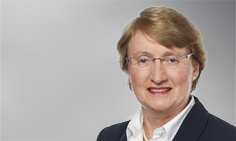WE know that many factors influence health: education, income, access to services, health literacy, lifestyle and diet, family support, and of course, genetic background.
There are many in our communities who are disadvantaged in all these factors over their whole lifetime. They are people who live with disability.
One in five Australians has some type of disability.
It is a very broad term, but at the more dependent end of this spectrum, some have impairments in intellectual and physical function, and need help in all aspects of daily living – mobility, continence, hygiene, nutrition, communication, and with “instrumental activities of daily living” – transport, financial and legal responsibilities, managing a household, and understanding medications.
People with disability have a disproportionate burden of poor health. About 69% of people with severe or profound disability are overweight or obese. Exercise levels are lower among this group, and diabetes and cardiovascular disease are more common. Many acquired medical conditions start earlier.
Oral health is worse. Medications, poor nutrition, orthodontic problems, difficulty in maintaining dental hygiene, all contribute. Access to dental care in an appropriate environment may be challenging. Poor oral health may then contribute to poor general health, with an increased risk of aspiration and other infections.
- Related: MJA — Can I jump puddles alone?
Maintaining adequate nutrition can be an ongoing challenge for those with swallowing problems. Muscle weakness and skeletal deformity affect mobility and access. Vision and hearing impairments contribute to communication problems and social isolation. Mental health issues, including suicidal thoughts, are present in up to 42%.
Many syndromes associated with disability have a long list of cardiovascular, muscular, skeletal, hearing and visual impairments which have a profound and lifelong impact on health. Health professionals who have not worked in the child health sector may have very little experience or training in such syndromes.
The supportive environment of “one hospital for everything” and a special educational setting which hopefully surrounds the disabled child changes dramatically with transition to the adult world.
Young adults and their carers may find that their condition is poorly understood. Clinic appointments are not coordinated and are time consuming. If admission to hospital is needed, adverse outcomes are more common. In addition to the medical and nursing care needed, it can be very difficult to provide all the care required to the standard which is given at home and expected by families and familiar carers for a patient with multiple needs and limited communication ability.
Transition to legal adulthood raises the question of decision-making capacity. Some will never have been able to make even the simplest choice, while others may want the full rights of adult decision making, without the ability to fully understand consequences, or to be able to carry out their decision without some assistance.
How well do families cope with this? How well does the health care system deal with often complex questions of how much disabled people are able to decide for themselves, and how much remains with the family or carers, who may have had much more day-to-day involvement than for other young adults.
Supported, rather than substituted decision making, is a developing concept. While most people at times ask for advice, professional help or the opinion of others when making decisions, medical consent has tended to be more “black and white” – the health professional explains, and the patient or their legal substitute decision maker gives consent.
A stepped decision-making process, with the disabled person assisted to make as many choices and decisions as possible, is more complex, but more respectful of the rights of the person with disability. It will require some re-education of health professionals, and a better understanding of risk and self-determination.
It is a marker of the quality of our health care and disability systems that an increasing number of children with significant medical conditions live to adulthood, and that most people with disability live satisfying and productive lives.
The onus is on us to provide equal access and quality of care, respecting the rights, choices and dignity of the person and their family.
Dr Catherine Yelland is a geriatrician and general physician. She is the Director of Medicine and Older Persons Service at Redcliffe Hospital in Queensland. She is also President-Elect of the Royal Australasian College of Physicians.

 more_vert
more_vert
In its General Comment on Article 12, the UN Convention on the Rights of Persons with Disabilities (CPRD) Committee is unequivocal and unambiguous that there is no room for substitute and supported decision making regimes to co-exist. That means that all guardianship and financial management jurisdictions must be abolished. Moreover, decision making does not exist on a continuum from supported to substitute but rather, supported to facilitated, the latter in those circumstances where the subject person’s views cannot be ascertained but where the will and preferences of that subject person must still be upheld. The UN CRPD Committee has criticised Australia’s interpretative declaration of Article 12, which allows for the continuance of guardianship and financial management jurisdictions, and called for that interpretative declaration to be be lifted.